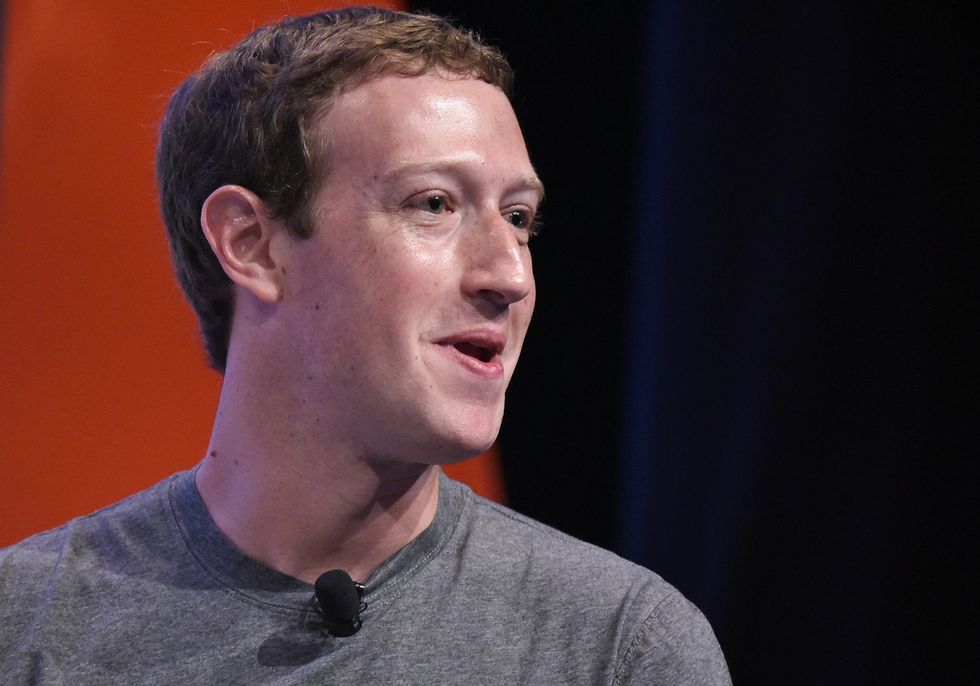
Facebook CEO and founder Mark Zuckerberg speaks during a discussion at the Global Entrepreneurship Summit at Stanford University in Palo Alto, California on June 24, 2016. (MANDEL NGAN/AFP/Getty Images)

Facebook, tired of being accused of bias and blamed for "fake news," is now leaving it up to users to decide which news organizations are credible and which are not.
The social media organization announced that it would rank news organizations by credibility based on users' responses to "trust ranking" surveys, with organizations determined to be "broadly trusted" likely to see a boost in readership.
In a statement, Facebook CEO Mark Zuckerberg wrote that the organization is no longer comfortable deciding which news outlets are trustworthy, saying they "decided that having the community determine which sources are broadly trusted would be most objective."
"The hard question we've struggled with is how to decide what news sources are broadly trusted," Zuckerberg wrote. "We could try to make that decision ourselves, but that's not something we're comfortable with. We considered asking outside experts, which would take the decision out of our hands but would likely not solve the objectivity problem. Or we could ask you -- the community -- and have your feedback determine the ranking."
Facebook did not provide many details about how the surveys would ask users to rank organizations, or how many positive or negative votes it could take to impact an organization's content.
Some have accused Facebook of trying to shirk responsibility for its content by pushing the decision off on users.
"I don't think there is any alternative to using your judgement," said Jay Rosen, journalism professor at New York University. "This idea that they can avoid judgement is part of their problem."
It's not clear which news outlets will be helped or hurt the most by this move. President Donald Trump's Fake News Awards slammed organizations like The New York Times, CNN and The Washington Post for incorrect reports.
A University of Missouri poll from Aug. 2017 listed Occupy Democrats, Buzzfeed and Breitbart as the three least trusted news sources, and the Economist, public television and Reuters as the three most trusted.
Charlie Warzel, senior technology writer at Buzzfeed, expressed concerns about the methods Facebook will use to conduct the survey. One of his primary questions was about how ideological and political bias would be accounted for, as media consumers sometimes dismiss legitimate news they disagree with as being fake.